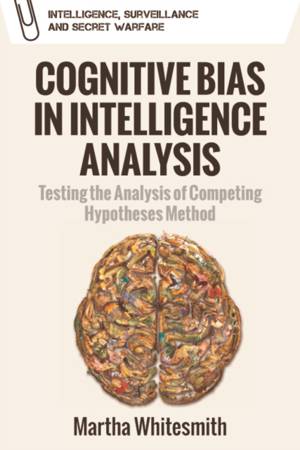
- Retrait gratuit dans votre magasin Club
- 7.000.000 titres dans notre catalogue
- Payer en toute sécurité
- Toujours un magasin près de chez vous
- Retrait gratuit dans votre magasin Club
- 7.000.0000 titres dans notre catalogue
- Payer en toute sécurité
- Toujours un magasin près de chez vous
Cognitive Bias in Intelligence Analysis
Testing the Analysis of Competing Hypotheses Method
Martha WhitesmithDescription
Tests whether the analysis of competing hypotheses reduces cognitive bias, and proposes a more effective approach
Reveals that a key element of current training provided to the UK and US intelligence communities (and likely all 5-EYES and several European agencies) does not have a proven ability to mitigate cognitive biasesDemonstrates that judging the credibility of information from human sources means that intelligence analysis faces greater complexity and cognitive strain than non-intelligence analysisExplains the underlying causes cognitive biases, based on meta-analyses of existing researchShows that identifying the ideal conditions for intelligence analysis is a more effective way of reducing the risk of cognitive bias than the use of ACH
Spécifications
Parties prenantes
- Auteur(s) :
- Editeur:
Contenu
- Nombre de pages :
- 304
- Langue:
- Anglais
- Collection :
Caractéristiques
- EAN:
- 9781474466356
- Date de parution :
- 30-05-22
- Format:
- Livre broché
- Format numérique:
- Trade paperback (VS)
- Dimensions :
- 156 mm x 234 mm
- Poids :
- 426 g

Les avis
Nous publions uniquement les avis qui respectent les conditions requises. Consultez nos conditions pour les avis.






